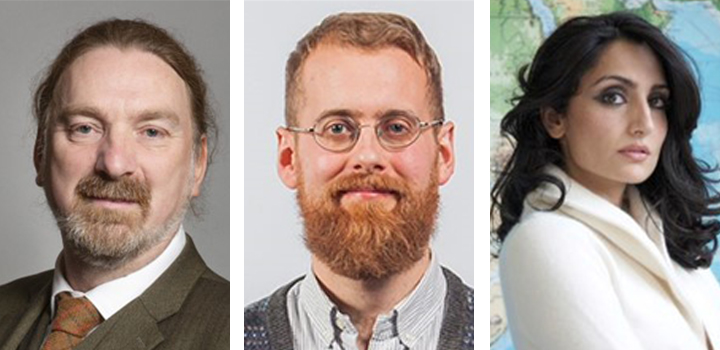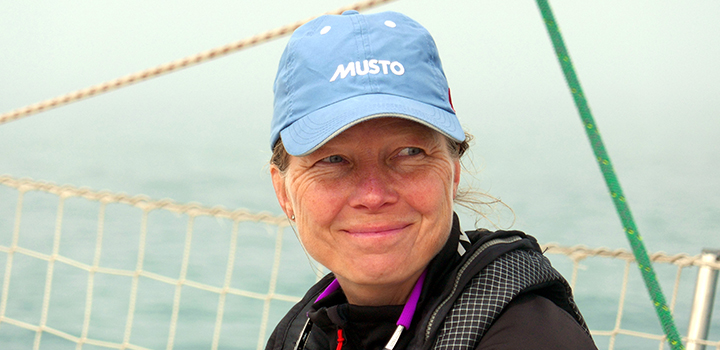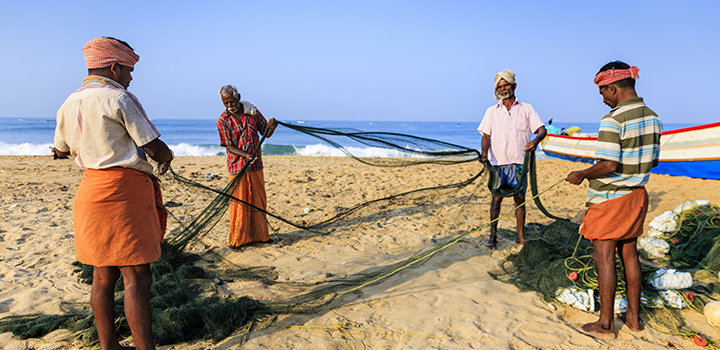New report from UEA Academic asks whether UK Aid Match has been used for ‘charity washing’, ahead of Westminster event
By: Communications

A new report, authored by University of East Anglia (UEA) academic Dr Martin Scott, asks whether UK Aid Match’s (UKAM) strict eligibility criteria may lead to ‘charity washing’ since charities are awarded grants based partly on their ability to ‘identify opportunities for ministerial involvement’.
Dr Scott, Associate Professor in Media and Development in the School of Global Development at UEA, has been investigating how UKAM, a government aid matching scheme set up to ‘give the public a greater say in how UK aid is spent’, may be discriminating against charities with smaller marketing capabilities, in essence limiting public choice.
To be eligible for government match-funding through UKAM, charities are required to comply with certain communication requirements, such as providing at least 400,000 opportunities for the public to view the appeal’s match fund offer, alongside featuring Ministers.
Since 2011, UKAM appeals have generated more than 14 billion unique Opportunities To be Viewed (OTVs) by the UK public. Of that number, communications involving Ministers, Parliamentarians, and Secretaries of State received over 45m OTVs in 2019 alone. In the February 2020 round of UKAM, the ‘value in kind for pro bono communications’ of the 1.7bn OTVs was given as £2.2 million. In his report, Dr Scott suggests that setting a minimum requirement for generating OTVs appears likely to discriminate against charities with smaller marketing capabilities.
The report also highlights that UKAM funding only amounted to a fraction of UK Official Development Assistance (ODA), just 0.2% since 2011. As a result, the 14 billion OTVs generated by UKAM may give the UK public a misleading impression of the true extent to which they are directing a portion of the UK aid budget to their favoured charities.
Dr Scott, speaking about his decision to use the term ‘charity washing’, said:
“If UKAM funding has distorted public perceptions of their influence over UK aid and has been used to make ministers look good - at a time of significant cuts to the UK aid budget – this would amount to charity washing.”
The aid reform group Real Aid and its All-Party Parliamentary Group (APPG) for Aid Match is campaigning for UKAM to be increased tenfold to 2% of ODA. Its founder and Aid Match architect, Renu Mehta, said:
“Our taxpayer’s money should not be used to ‘charity wash’ the Government’s public image, to the detriment of NGOs. It should promote Real Aid; to get more of taxpayers’ money delivered more directly, via frontline NGOs, with less government waste’.”
According to Dr Scott, requiring Ministerial involvement may actually have a negative impact on donations since research shows that Ministers are relatively ineffective ‘messengers’ for fundraising campaigns, compared to NGO workers, volunteers, and aid recipients.
The report also suggests that as UKAM has adapted to respond to ministerial requests to support appeals that fall outside the competitive funding rounds, it is possible that some UKAM allocations may reflect Ministers’ pursuit of reputational benefits, rather than public support. This is significant because the Ministerial Code warns that, ‘Ministers should... avoid any criticism that a Minister is using his or her official position to influence or take the credit for donations to charity’. The requirement for Ministerial involvement, combined with other obligations, might also discourage charities from publicly criticising UK Government aid spending.
Since 2011, £331m of UK Aid money has been allocated to UKAM by the Department for International Development and the Foreign, Commonwealth and Development Office to match-fund public donations for 178 different campaigns. Up to 30 percent (£98 million) of UKAM funding has been allocated to 14 different UK Disasters and Emergencies Committee (DEC) appeals.
The co-chair of the All-Party Parliamentary Group (APPG) for Aid Match and International Development Select Committee member, Chris Law MP, said:
“The cut in ODA from 0.7% to 0.5% of GNI has resulted in death-sentence cuts to programmes designed to alleviate poverty and support the poorest and most vulnerable in our global society… UKAM is one of those tools that can play an important role in encouraging members of the public to donate and provide NGOs with much needed additional funding in order to help the UK meet the UN’s Sustainable Development Goals”.
Related Articles

UEA academic set to sail from Africa to Australia for UNICEF
Prof Maren Duvendack, an intrepid academic from the School of Global Development at the University of East Anglia, is sailing more than 8,000 km from South Africa to Australia to raise money for UNICEF.
Read more
Family networks improve outcomes for internal migration
Small-scale fishers in India could be benefiting from increase in forced migration, thanks to new research from UEA.
Read more
A values crisis underpins the biodiversity and climate emergency
A new study published in Nature shows how undervaluation of nature is foundational to the environmental crisis we face.
Read more